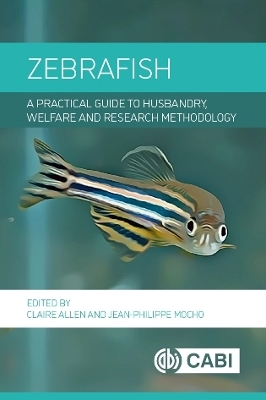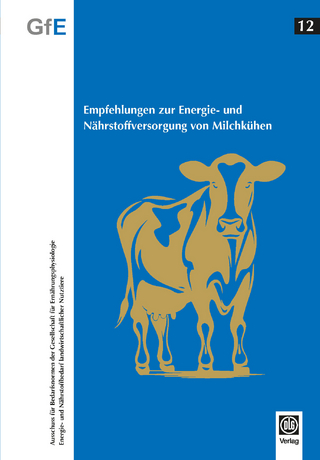
Zebrafish
CABI Publishing (Verlag)
978-1-80062-942-4 (ISBN)
After securing popularity in home aquariums, zebrafish have also become an essential animal for biomedical research. Ensuring they are adequately cared for in research settings is therefore of the utmost importance and this book is designed to help laboratories develop good welfare and husbandry practices, refine procedural protocols and engage with ethical obligations. A wide range of topics are addressed, starting with husbandry aspects such as environmental enrichment, nutrition, housing conditions, diseases, health monitoring, biosecurity and larval rearing. More experimental topics are then discussed, such as genotyping, ageing, imaging, behavioural studies, experimental design and statistics. Ethical challenges are also considered through the environmental impact of aquatic facilities and the 3Rs - Replacement, Reduction and Refinement - with a focus on anaesthesia, analgesia, euthanasia and severity assessment. Zebrafish are a shoaling species by nature but this book also takes into account their individual needs by providing: - practical advice from experienced zebrafish caretakers; - bridges between data acquisition and fish welfare; and - the latest guidance for reporting, reproducibility and compliance. This book is written for zebrafish facility personnel and for researchers who are aware of the need for robust care for their zebrafish model. It also provides an unparalleled insight for ethics committee members with the intention to provide the best care possible for this ever-important fish.
Jean-Philippe Mocho (Edited By) J-P graduated in France as a Doctor in Veterinary Medicine at the start of the century. He practiced as a large animal vet across the French countryside, Wales, Scotland, and Northern Ireland. In 2009, he joined the Royal Veterinary College to dedicate his career to laboratory animals as a Named Veterinary Surgeon, providing his services to London's major academia and research institutes. His approach based on his experience of population medicine led him to the new shores of aquatic facilities. He devoted himself to the development of better care for zebrafish, thanks to experimental data supporting the 3Rs and the publication of recommendations. The latter was helped by J-P's leadership in activities of the Federation of European Laboratory Animal Science Associations, such as organising international congresses, chairing scientific committees, and convening working groups on aquatics.
Part I: Part I 1: The zebrafish model: an introduction 2: Environmental enrichment for zebrafish 3: Dietary requirements for zebrafish 4: Non-infectious diseases of zebrafish 5: Infectious diseases of zebrafish 6: Adult zebrafish as a vertebrate model of ageing 7: Organization of the zebrafish facility: biosecurity, water quality, health monitoring and environmental impact Part II: Part II 8: The 3Rs in zebrafish research 9: Statistical considerations for the breeding of zebrafish and their use in experiments 10: Genotyping methods in zebrafish 11: Imaging of zebrafish 12: Behaviour in zebrafish 13: Anaesthesia, analgesia and euthanasia of zebrafish: protocol evaluation 14: Severity assignment for EU and UK procedures on zebrafish
| Erscheinungsdatum | 02.10.2024 |
|---|---|
| Co-Autor | Rita Almeida, Kamar E. Ameen-Ali, James Bull |
| Verlagsort | Wallingford |
| Sprache | englisch |
| Maße | 156 x 234 mm |
| Themenwelt | Weitere Fachgebiete ► Land- / Forstwirtschaft / Fischerei |
| ISBN-10 | 1-80062-942-7 / 1800629427 |
| ISBN-13 | 978-1-80062-942-4 / 9781800629424 |
| Zustand | Neuware |
| Haben Sie eine Frage zum Produkt? |
aus dem Bereich


